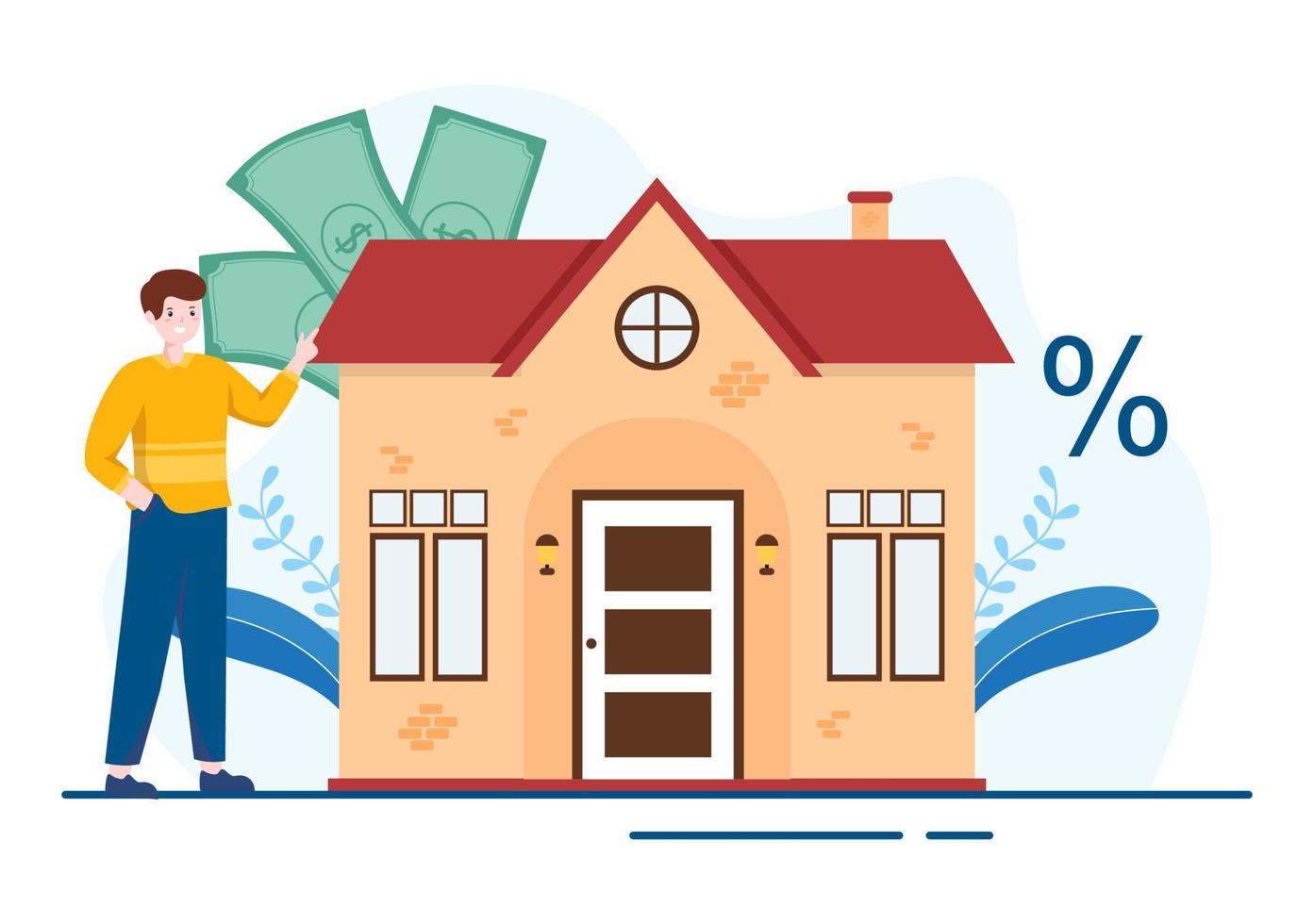Political Mortgages And How To Take Advantages From Them
Political mortgagesrefer to a type of mortgage that is backed or guaranteed by a government entity, such as a federal or state government. The purpose of political mortgages is to make it easier for people to purchase a home by providing favorable lending terms, such as lower interest rates or lower down payment requirements. In this article, we will explore the pros and cons of political mortgages and examine their role in the housing market.
Advantages Of Political Mortgages
The primary advantage of political mortgages is that they make it easier for people to buy a home. Political mortgagestypically offer lower interest rates, which can save borrowers thousands of dollars over the life of their loan. Additionally, political mortgages often have lower down payment requirements, which can make it possible for people with limited savings to become homeowners.
Another advantage of political mortgages is that they can help stimulate the economy. When people buy homes, they create demand for goods and services related to homeownership, such as furniture, appliances, and home improvement services. This increased demand can help create jobs and boost economic growth.
Disadvantages Of Political Mortgages
One disadvantage of political mortgages is that they can be risky for taxpayers. When a government guarantees a mortgage, they are essentially putting taxpayers on the hook for any losses if the borrower defaults on the loan. If there are too many defaults, the government may end up losing money, which could lead to higher taxes or reduced funding for other programs.
Another potential disadvantage of political mortgages is that they can distort the housing market. When the governmentoffers favorable lending terms, it can create artificial demand for homes, which can drive up prices. This can make it more difficult for people who don't qualify for political mortgages to buy a home.
Examples Of Political Mortgages
One example of a political mortgage is the Federal Housing Administration (FHA) loan program. The FHA is a government agency that provides mortgage insurance to lenders who offer FHA loans. FHA loans are popular because they typically have lower down payment requirements and more flexible credit score requirements than traditional mortgages.
Another example of a political mortgage is the Veterans Affairs (VA) loan program. The VA is a government agency that provides benefits to veterans and their families, including home loans. VA loans are popular because they typically offer lower interest rates and don't require a down payment.
Future Of Political Mortgages
As the housing market continues to evolve, the role of political mortgages is likely to change as well. In recent years, there has been growing interest in alternative forms of financing, such as shared equity and community land trusts. These models aim to create more affordable and sustainable housing options by sharing the costs and risks of homeownership among multiple parties.
Some policymakers have also proposed expanding access to political mortgages to underserved communities, such as low-income households and people of color. This could help address longstanding disparities in homeownership rates and wealth accumulation.
However, expanding access to political mortgages also raises questions about the appropriate role of government in the housing market. Critics argue that government intervention can distort market incentives and create unintended consequences, such as encouraging excessive risk-taking or exacerbating economic inequality.
Tips For Choosing A Political Mortgage
If you're considering a political mortgage, there are a few key factors to keep in mind:
- Interest Rates:One of the most important factors to consider when choosing a mortgage is the interest rate. Political mortgages may offer lower interest rates than traditional mortgages, which can save you money over the life of the loan.
- Down Payment Requirements:Political mortgages may also have lower down payment requirements, which can make it easier for you to buy a home if you don't have a large amount of savings.
- Fees and Closing Costs:When comparing political mortgages, be sure to look at the fees and closing costs associated with each option. Some political mortgages may have higher fees than traditional mortgages, so it's important to factor these costs into your decision.
- Eligibility Requirements: Different political mortgages may have different eligibility requirements, such as credit score or income requirements. Be sure to research these requirements and make sure you meet them before applying for a political mortgage.
- Risks and Trade-offs: Finally, it's important to weigh the potential risks and trade-offs of a political mortgage. While political mortgages can make it easier to buy a home, they also come with risks, such as the potential for taxpayer losses if borrowers default on their loans. Be sure to consider these factors before making a decision.
Risks Associated With Political Mortgages
While political mortgages can offer benefits such as lower interest rates and down payment requirements, they also come with risks that borrowers should consider. Some of the key risks associated with political mortgages include:
- Default Risk: Like any other type of mortgage, political mortgages are subject to default risk. If borrowers are unable to make their monthly payments, they risk losing their homes and defaulting on their loans. If a significant number of borrowers default on political mortgages, it could lead to significant losses for taxpayers.
- Political Risk: Political mortgages are subject to political risk, which refers to the risk that changes in government policies or regulations could negatively impact borrowers or lenders. For example, if policymakers change the rules governing political mortgages, it could affect borrowers' ability to repay their loans or lenders' ability to make a profit. To avoid political risk you should take care of media like Washington Independent to keep in touch with political reality.
- Market Risk:Political mortgages are also subject to market risk, which refers to the risk that changes in the housing market could affect the value of borrowers' homes or the profitability of lenders. If housing prices decline, for example, borrowers may owe more on their mortgages than their homes are worth, making it difficult to sell or refinance their homes.
- Interest Rate Risk: Political mortgages are also subject to interest rate risk, which refers to the risk that changes in interest rates could affect borrowers' ability to make their monthly payments. If interest rates rise, for example, borrowers may have to pay more each month, making it harder to keep up with their payments.
- Systemic Risk:Finally, political mortgages are subject to systemic risk, which refers to the risk that a large number of defaults or losses could destabilize the entire housing market or financial system. If a significant number of borrowers default on political mortgages, it could have ripple effects throughout the housing market and broader economy.
People Also Ask
What Is A Mortgage Example?
A mortgage is a loan used to purchase a property, typically a home. The borrower (also known as the mortgagor) agrees to pay back the loan over a set period of time, usually 15 or 30 years, with interest. The property serves as collateral for the loan, which means that if the borrower fails to make their payments, the lender (also known as the mortgagee) can foreclose on the property and sell it to recover their losses. For example, if someone wants to buy a $250,000 home and puts down a $50,000 down payment, they would need a $200,000 mortgage to finance the purchase.
What Are The Three Parties To A Mortgage?
There are three parties involved in a mortgage:
- Borrower (mortgagor): The individual or entity that takes out the mortgage loan to purchase a property.
- Lender (mortgagee): The individual or institution that provides the funds for the mortgage loan and holds a lien on the property until the loan is repaid.
- Title Company: A third-party company that ensures the transfer of ownership from the seller to the buyer is legal and free of any liens or claims.
Who Are The Two Major Parties In A Mortgage?
The two major parties in a mortgage are the borrower (mortgagor) and the lender (mortgagee). The borrower is responsible for making payments on the loan and maintaining the property, while the lender provides the funds for the loan and holds a lien on the property until it is paid off.
Conclusion
Political mortgages can be a valuable tool for helping people buy homes and stimulating the economy. However, they also come with risks, such as the potential for taxpayers to bear losses if borrowers default on their loans. It's important for policymakers to carefully consider the benefits and drawbacks of political mortgages and to implement them in a responsible and sustainable way. Ultimately, the goal should be to create a housing market that is accessible to as many people as possible, while minimizing risk to taxpayers and promoting economic growth.


